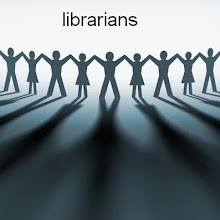Deprofessionalization in Academic Libraries
CAPAL/ACBAP Open Letter to Mount Allison University
January 19, 2018Re: De-professionalization in Library Leadership
The Canadian Association of Professional Academic Librarians / l’Association canadienne des bibliothécaires académiques professionnels (CAPAL/ACBAP) is concerned that recent strategic decisions in Canada’s post-secondary institutions threaten to undermine the academic purpose, function and professional autonomy of Canada’s academic libraries.
Despite the libraries in universities and colleges being more heavily used than ever, and librarianship being a well-established academic profession, what librarians actually do and in particular how they contribute to an institution’s academic mission remain poorly understood. Case in point: Mount Allison University, where administration is seeking to phase out the position of the University Librarian and replace it with a managerial position that would emphasize operational and corporate priorities over academic library issues. As well, St. Lawrence College was recently in the headlines for seeking to eliminate the full-time university librarian position and replace with a new management position.
These moves to de-professionalize leadership positions in academic libraries are only part of a larger general trend towards increasing adoption of para-professional and non-specialist staffing models: Cambrian, Canadore, Confederation, SS Fleming, Lambton, Loyalist, Northern, Sault, and St. Clair colleges are currently without faculty librarian positions.
An academic library is a unique, hybrid environment – a place of learning and discovery, as well as a service point. Unfortunately, it is the latter transactional aspects of library operations, along with the physical presence of books on shelves and databases on the computer, that constitute the common and limited understanding of what a library is. What is missing is an accounting for the behind-the-scenes expertise, theoretical foundations and strategic planning that are the purview of academic librarians in making collections available, but more importantly, to make them discoverable, thereby supporting curricula design, teaching and research. Although much has changed in the way we access information in the 21st century, spiraling subscription costs, open access mandates for publicly funded research, the evolution of scholarly communications, and emerging recognition for data stewardship affirm the academic librarian’s central role in the preservation and sharing of knowledge. Librarians are no longer the “keepers of books” but rather partners in the cultivation, facilitation, and sharing of knowledge. We are intimately tied to the research life cycle and bring valuable expertise to matters of knowledge production, dissemination, and preservation including intellectual property, copyright, scholarly communications, bibliometrics, and open access issues.
The proposal at Mount Allison reflects a failure to understand the academic librarian’s role as an educator, teacher and faculty colleague. Academic librarians not only connect users with the information they need, but more importantly, they help students situate, evaluate, and contextualize such information. Universities and colleges play a key role in inculcating students with critical thinking skills, which are essential for a functioning democracy, especially in the age of fake news and rampant misinformation. As professionals committed to facilitating access to uncensored and unbiased information, academic librarians are integral to the fulfillment of an institution’s academic mission and its responsibility to society.
The move to de-professionalize leadership positions in academic libraries therefore threatens to undermine the scholarly role of the library in post-secondary institutions. In downgrading the position of the University Librarian to that of a manager, the position may have limited autonomy or ability to plan strategically for library operations. Furthermore, managers with no background in librarianship cannot be expected to understand or incorporate into their planning all the forces, factors and practices described above. Librarians’ education, judgment, professional expertise and status contribute fundamentally towards making academic libraries what they are.
This trend suggests that the academic library is instead being seen simply as a dispensary of goods, the throughput of which can only be assessed in terms of efficiencies, rather than the quality of the scholarship it facilitates or the careers and life chances it might inspire.
For these reasons the Board of CAPAL/ACBAP strongly objects to the de-professionalization of library leadership positions, and urges the administration of Mount Allison University to reconsider their decisions, and retain a professional librarian as the head of your library.
CAPAL/ACBAP is a national organization representing academic librarians and the profession of academic librarianship in Canada. Our mission is to promote, advance, and support the profession of academic librarianship for the advancement of research, teaching, and learning at accredited post-secondary institutions and to further the professional interests of our members. We believe that our academic communities are enriched when academic librarians are respected, supported and recognized as equal academic partners in the building of excellent teaching and research communities.
Respectfully, CAPAL/ACBAP Board of Directors: Mona Elayyan (York University) Douglas Fox (Victoria University in the University of Toronto) Mary Kandiuk (York University) Laura Koltutsky (University of Calgary) Emma Popowich (University of Manitoba) Eva Revitt (MacEwan University) Lisa Richmond (Wheaton College) Harriet Sonne-de-Torrens (University of Toronto Mississauga) Courteney Waugh (Western University) Anna Wilson (University of Alberta)
Source: http://capalibrarians.org/2018/01/capalacbap-open-letter-to-mount-allison-university/






